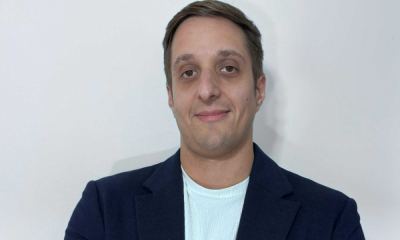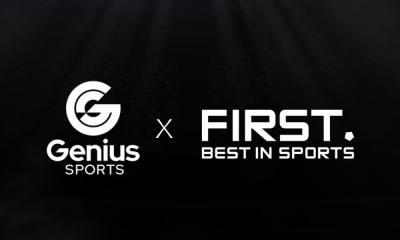Interviews
Roundtable: Marketing responsibly within a stricter environment

With emerging markets and countries taking a stricter approach to regulation in recent weeks, the subject of responsible marketing remains high on the agenda.
As an industry we understand the importance of being safe and responsible when engaging with end users with marketing material, but how exactly are operators and suppliers working together to ensure that best practices are maintained on a daily basis?
We asked Daniela Speranza, Head of Compliance at Betsson, Liesbeth Oost, Sustainability Manager at Aspire Global and Peter Christian Noer, Head of Country Managers at Soft2Bet, to discuss the tools and measures that are being utilised to improve the execution of responsible marketing.
Given the increased scrutiny around marketing across multiple regulated markets, do you think more can be done at platform level to support operators in their efforts to be more responsible?
Peter Christian Noer: Yes and no, we believe the responsibility falls on every operator, to ensure its marketing practices are kept in line with regulations. However, the more tools that can be provided the better. Especially in terms of targeting, so that operators can filter out under-age people easily.
It all comes down to data and what opportunities the platform provider has in place, if the system is kept secure and a trusted source of compliant traffic, then increased marketing budgets will be allocated to the platform.
Overall, it is in everyone’s interest that the platform can offer great protection, betting and data tools, although the responsibility of the allocated marketing budget should always fall on the operator.
Daniela Speranza: Yes, ideally platforms would be designed with responsible gambling considerations at their core, making it simpler for operators to achieve their objectives in this sense and comply with their ever-increasing obligations. For example, if platforms were to be tailored to cover market-specific legislation and advertising standards, I believe that it would be easier to protect the end-user, this of course being the ultimate goal of any responsible gambling requirements. The greatest thing about software is that it is plastic, and it can be moulded as we desire. This benefit must be used to our advantage as operators, always subject to the exigencies of the market competition, of course.
Furthermore, artificial intelligence and real-time alerting models can be integrated with platforms to provide efficient monitoring and analyses, enabling operators to interact proactively with players and ultimately providing end-users with the ability to make informed choices.
Liesbeth Oost: With AI and machine learning technology coming on in leaps and bounds in recent years, there’s a lot more that providers can do for operators in this space. For instance, in the world of affiliate marketing, an operator can have dozens of affiliates and the operator is responsible for ensuring each one remains compliant. When platform providers invest in developing the right solution, they have the ability to offer greater oversight on affiliates. This leaves the operator open to a lot less risk, which is a huge step forward, especially as stricter marketing rules are being enforced.
The industry has embraced a lot of different aspects of sustainability such as responsible marketing in the last two years. It’s easy to see how that is becoming more a part of the culture now, and this isn’t purely motivated by a fear of getting fined. Embracing compliance has led to better business, so it is no surprise that doing so with responsible marketing, for which Aspire is a strong advocate, has had a similar impact. It would be fantastic to see those efforts replicated in the wider industry, which could only serve to benefit operators.
What are the key differences between different jurisdictions approach to responsible marketing?
Liesbeth Oost: There are massive differences between jurisdictions. However, one steadily emerging trend is the markets that have regulated most recently seem to be the strictest. In the Netherlands, which has recently introduced its new regulatory framework, penalties on advertising violations result in non-eligibility to apply for a license.
Elsewhere, the US is very serious about each business’ role in the environment and its overall social governance. Embedding a culture of responsible gambling in a newly regulated country bodes well for the future of the market, promoting safer gaming experiences that players can enjoy.
Daniela Speranza: Whilst the intention of responsible marketing measures in different jurisdictions is more or less the same, namely, to reduce rates of gambling addiction and ramp up player protection efforts, especially for vulnerable groups such as problem gamblers and minors, there are key differences when it comes to how different jurisdictions approach it.
Certain measures in jurisdictions which do permit marketing are often similar regarding what can and cannot be included in communications regarding marketing material. For example, requiring ads to be socially responsible, not targeting minors or portraying sexual content.
At Betsson, we believe that advertising is vital for channelisation. Associations like the European Gaming & Betting Association’s (EGBA) are aiming to set long-term standards for gambling advertising content in Europe. Betsson is a member of EGBA and follows its Code of Conduct on Responsible Advertising for Online Gambling with a firm commitment on responsible gambling.
Peter Christian Noer: I wouldn’t say that there are many differences. Overall, they are quite similar with each jurisdiction having a unique trait. For example, some regulators will want a license number included in banners whereas others don’t mind.
The main rules to follow are quite consistent, such as not targeting minors, following good marketing practices, indicating terms associated with offers, offering full terms and including references to responsible gambling helplines or services.
Perhaps one of the biggest differences between jurisdictions is how many disclaimers need to be included. However, in my opinion, this doesn’t serve much of a purpose. In certain jurisdictions, regulators differentiate the number of disclaimers based on the market channel, as some allow for more to be included. However, this allows these regulators to bloat the requirements. I personally fail to see the point of including several disclaimer sentences in marketing messages, no one reads them, and, in any case, they are available online.
What sort of solutions does your company provide in supporting operators with their responsible marketing efforts?
Peter Christian Noer: As an operator ourselves, we mostly rely on the tools provided by partners at our disposal. In general, we maintain a strong level of communication with our provides and external partners.
We also normally work with partners that have operated within the industry before, since they have experience with special regulatory, technical and business requirements. More importantly they’ll also understand that our iGaming industry probably has more restrictions than others.
Since players’ trust is crucial in all markets, it’s also important that we as an operator market ourselves in a responsible and balanced manner. We also ensure that we stay within the guidelines and not go outside of them. Facing courts for marketing violations not only hurts the operator but the industry as a whole. We must acknowledge that we are an easy target and that we should all work collectively to improve the presentation of our offers so that they are clear and fair, otherwise future marketing restrictions will continue.
Daniela Speranza: Betsson understands the importance of identifying early signs of potential gambling-related harm and with this in mind, constantly invests in technology to develop automation and tools to help identify end-users at risk, such as late-night gamblers, chasing losses, heavy spenders, frequent depositors and limits being changed frequently. Our in-house built RG Prediction Tool with the help of various other reports, alerts and escalation processes is in use by a dedicated safer gambling team that is collating all data, analysing, and using the outcomes for interactions and interventions.
Betsson also ensures that marketing and advertising efforts are conducted in a socially responsible manner. Marketing and advertising communications are not aimed at, nor appeal to, underage persons (i.e., any age below the legal age for gambling in any jurisdiction where the communication is targeted) and carry appropriate warnings about underage gambling. By way of example, no logos or names of gambling products or services are found on products intended to be used or worn by underage persons. Advertising is not shown on any websites that children may frequent; YouTube and social media content are age-gated; celebrities or prolific persons are not used in marketing if they are under the age of 25, and persons that are shown, are shown to be gambling responsibly, for example no links to alcohol and gambling together.
The Compliance team is well integrated with the marketing teams and provides guidelines and training so that marketing is responsible and meets the various regulatory standards of moderation. Furthermore, the Compliance team oversees these functions to ensure that published marketing material follows internal guidelines and policies.
Liesbeth Oost: A huge challenge for most operators is how they monitor their affiliate partners to ensure they are always compliant. Overseeing every aspect of how multiple affiliates are performing is a massive task that cannot be done without the support of technology. To help with this, Aspire has partnered with Rightlander, which offers a range of solutions for affiliate compliance monitoring. Through its technology, we can identify affiliates bidding on client brand names, hijacking traffic and using their own tracking codes to intercept traffic.
Significant strides have been made in the world of machine learning and AI, which means that advanced platforms can actively optimise campaigns to a much greater extent and reduce the need for judgement calls on employees’ part. Most importantly for this issue, these tools can monitor a huge number of sites and flag any that may not be compliant in that market in an efficient manner.
Although our operating partners take care of their own marketing and relationships with affiliates, we are equipped to assist them in their operations and provide them with a service that ensures affiliates are not misrepresenting their brand.
Powered by WPeMatico
Baltics
HIPTHER Community Voices: Interview with the CEO and co-founder of Nordcurrent Victoria Trofimova
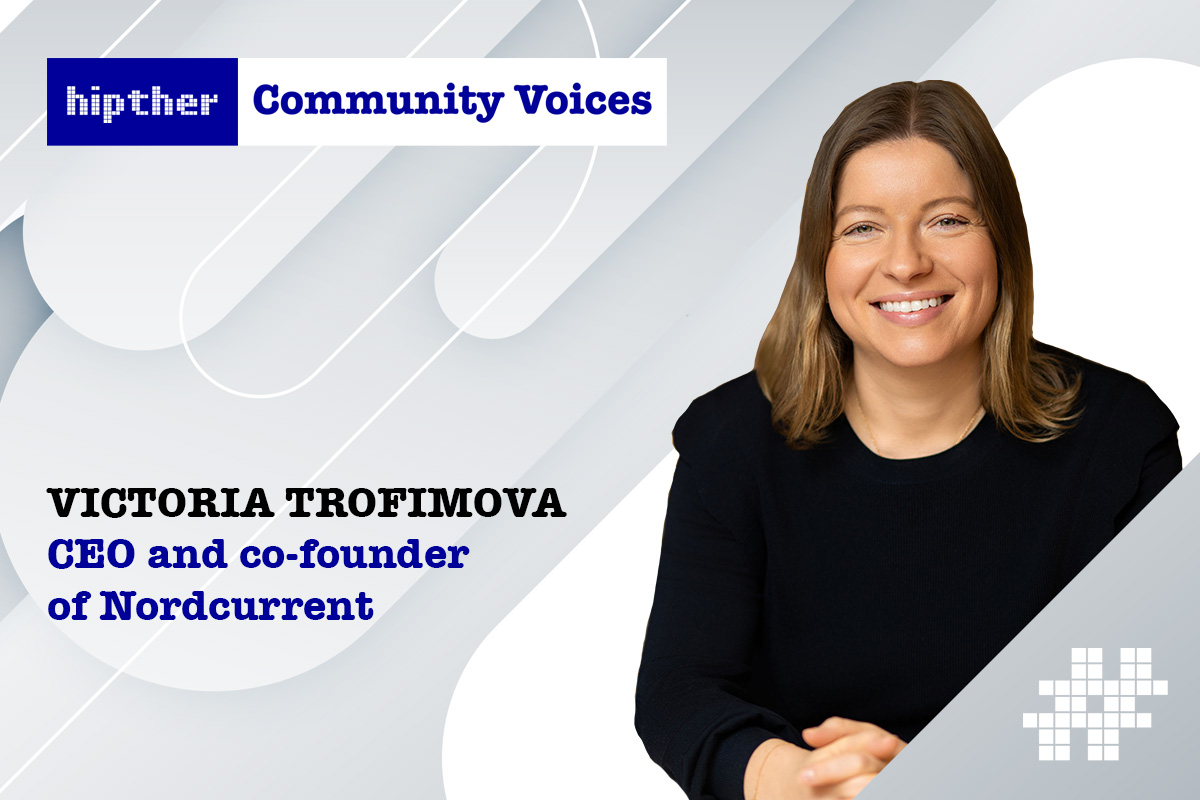
In this edition of HIPTHER Community Voices, we talk with Victoria Trofimova, the CEO and co-founder of Nordcurrent, the biggest game studio to come out of Lithuania and the Baltics. Since starting the company in 2002, Victoria has led Nordcurrent from a small team to an international gaming success story — all without external funding.
She shares how key decisions like focusing on mobile games, building a diverse team, and staying true to their creative vision helped shape Nordcurrent’s growth. We also dive into how she’s helping put the Baltics on the global gaming map, supporting young talent, and what advice she has for the next generation of women leaders in tech.
Nordcurrent has grown into a Baltic powerhouse since its founding in 2002. What were some of the pivotal moments that shaped the studio’s identity and success—especially as a bootstrapped company?
One key moment was our decision to focus fully on mobile gaming early on. That shift, around 2010, allowed us to scale globally with titles like Cooking Fever, which became a long-term success story. Another pivotal step was building and retaining in-house capabilities, from development to marketing, while staying self-funded. Being bootstrapped taught us discipline, resilience, and how to make bold yet thoughtful decisions without external pressure.
You’ve scaled a 360-person team across multiple countries. What have been the biggest challenges—and advantages—of growing Nordcurrent without external funding?
The biggest challenge has been growth pacing. We had to build sustainably, without shortcuts. But that’s also been our advantage; we’ve kept creative control, built long-term trust with our team, and stayed focused on profitability and product quality. It’s a different rhythm, one that favors deep thinking over hype.
Diversity in gaming is still lagging behind. What concrete steps has Nordcurrent taken to drive inclusion, and how do you embed this into studio culture, hiring, and leadership?
We don’t overcomplicate it, we hire the best people who want to build great games with us. We don’t separate or label by gender, background, or title. If someone brings talent, drive, and a collaborative mindset, they belong here. That approach has naturally led to a diverse team, including strong female leadership across departments. We focus on creating an environment where everyone is treated equally, trusted, and heard.
You’ve spoken about attracting global talent to Lithuania and the Baltics. What makes the region appealing—and what misconceptions do you often have to overcome when recruiting internationally?
The Baltics offer a great work-life balance, strong tech ecosystems, and a tight-knit creative scene. But we still need to overcome outdated perceptions; for example, that it’s cold, isolated, or lacking opportunity. The truth is, Vilnius and other cities here are dynamic and are increasingly being recognized for innovation.
In such a saturated gaming market, how does Nordcurrent approach innovation and stay relevant without falling into trend-chasing?
We listen deeply. To players, to data, and to our instincts. With over two decades of experience, we’ve built a rich internal library of what works, what lasts, and what connects. Innovation for us isn’t about reinventing the wheel every time. It’s about layering insight, emotion, and cultural nuance onto strong foundations. We don’t chase trends, we ask how a game fits into people’s lives. That’s why titles like Airplane Chefs resonate. They’re familiar yet fresh, culturally rich but globally accessible. Years of learning has given us the confidence to trust our gut and the clarity to know when to try something bold.
From mobile hits to console and PC publishing—how has your portfolio strategy evolved, and how do you decide what kinds of games to invest in today?
Our mobile success gave us the freedom to diversify. With Nordcurrent Labs, we now publish PC and console games that align with our values: original IP, strong storytelling, and long-tail potential. We look for teams with vision and grit, whether it’s cozy games or narrative-rich adventures.
You recently acquired River End Games and the Cinemaware catalog. What’s the strategic thinking behind those moves, and what can players expect from these legacy properties going Forward?
River End Games brings deep narrative talent and AAA craftsmanship, which complements our publishing ambitions. With Cinemaware, we’re reimagining classics for a new generation. These acquisitions aren’t about nostalgia only, they’re about unlocking untapped creative value in ways that feel both respectful and bold.
How are you helping to nurture the next generation of game developers in the Baltics, and what role do you think studios should play in education or early talent development?
We take this responsibility seriously. As the largest Lithuania-born game developer, we feel a strong duty to help grow the industry, not just our studio. We actively collaborate with the Lithuanian Game Developers Association, support local game jams, and organize major meetups that bring the community together. Our goal is to make the gaming industry more visible, more accessible, and more appealing, especially to young people who may not yet see it as a real career path.
It’s not just about hiring talent, it’s about helping to create it. We believe studios should take an active role in popularizing the industry, opening doors, and building a future where game development is seen as a creative and respected profession.
You’re leading a company that’s rooted in Eastern Europe but competing on a global stage. How do you balance local values with global ambitions?
We don’t see it as a conflict. Our roots give us authenticity and resilience, and these are qualities that resonate globally. We build games that are grounded in strong craft and cultural richness but are universally relatable. Staying true to who we are has been our best strategy for going global.
And finally—what advice would you give to aspiring women leaders in tech and gaming who want to break into this industry and rise through the ranks?
Own your voice. You don’t need to fit a mold to lead. Surround yourself with people who challenge and support you. And remember, leadership isn’t just about a title, it’s about taking responsibility, lifting others, and staying curious. Tech and gaming need your perspective, and there’s room for you at the table.
The post HIPTHER Community Voices: Interview with the CEO and co-founder of Nordcurrent Victoria Trofimova appeared first on European Gaming Industry News.
Interviews
Portrait of a Fraudster Then and Now: How Scammers’ Habits and Tactics Are Changing
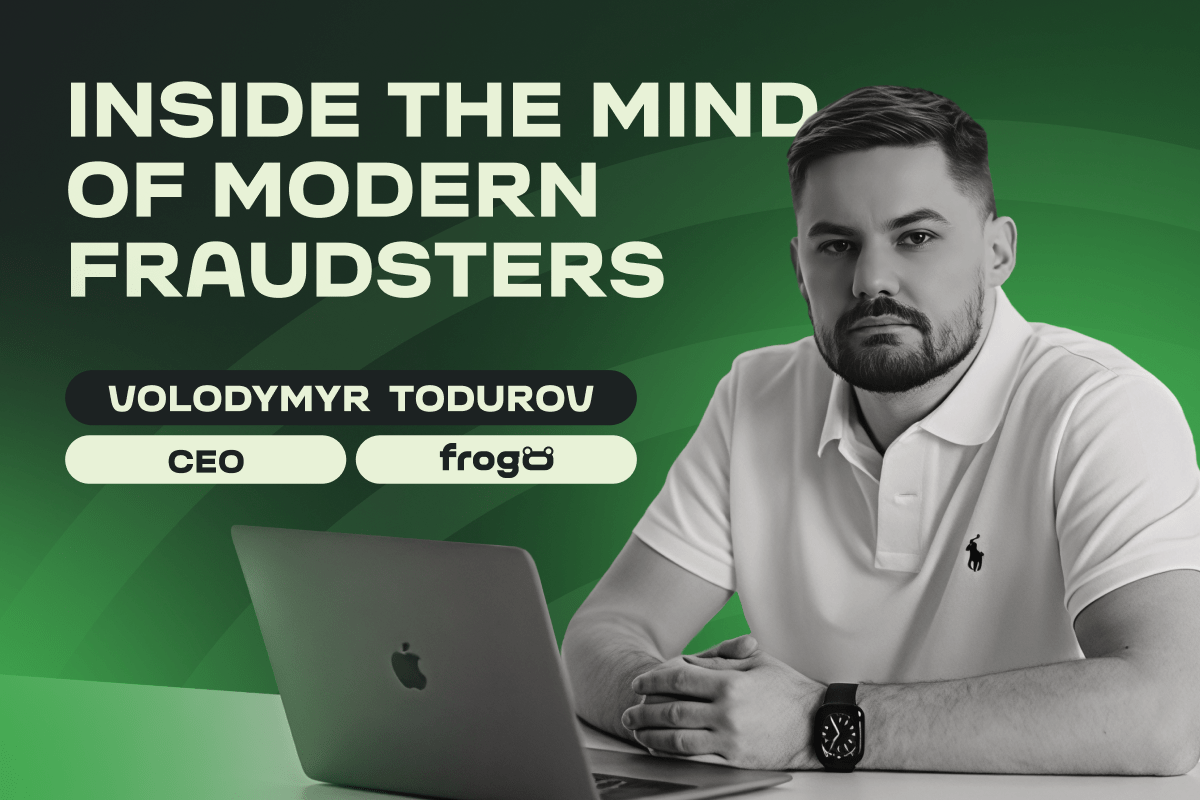
Fraud in the iGaming sector is no longer the work of lone opportunists. Today’s scammers operate in well-organized, tech-savvy networks – quietly exploiting systems that weren’t built to catch them. And as the digital economy grows, so too does the complexity of fraud schemes targeting gaming operators.
Amid this evolving threat landscape, Frogo has emerged as a company redefining how fraud prevention should work. We spoke with Volodymyr Todurov, CEO at Frogo, to get an inside look at how fraudsters are changing their tactics – and what operators can do to stay ahead.
Fraudsters evolve fast – how does your system stay one step ahead without overwhelming teams with false alarms?
Absolutely, the landscape of fraud is constantly shifting and staying ahead requires more than static rules. At Frogo, we’ve developed a dynamic system that adapts in real-time to user behavior and transaction contexts. Our platform learns from both fraudulent and legitimate activities, enabling it to distinguish between the two more effectively. This approach reduces false positives and ensures that our clients’ teams can focus on genuine threats without being bogged down by unnecessary alerts.
Can you walk us through a real-world case where your platform uncovered a fraud scheme traditional tools missed?
Absolutely. One notable case involved a large-scale bot attack targeting SMS-based fraud vectors. Initially, our standard device ID-based defenses helped neutralize the first wave of the attack. However, the adversaries quickly adapted, altering their emulation tactics to bypass traditional checks. At that point, conventional methods were no longer sufficient to detect the evolving fraud.
We responded by implementing a dynamic anomaly detection framework. This involved redefining detection signals in real-time using IP intelligence and deep device fingerprint attributes – areas where our proprietary data collection algorithms provided a significant edge. By anchoring detection logic to more granular and resilient signals, we were able to recalibrate thresholds dynamically, ensuring legitimate users weren’t impacted.
The results were decisive: bot attack efficiency dropped sharply from over 80% to just 3.5%.
What’s something about fraud detection that most businesses get wrong? And how does Frogo challenge that?
A common pitfall we see is operational rigidity – many businesses rely on static rules and general-purpose triggers that result in high false positive rates. This not only burdens anti-fraud teams with unnecessary manual reviews but also degrades the experience for legitimate users, especially loyal or VIP customers.
For example, it’s typical to see blanket rules like “manually verify all payouts over X euros.” While that may seem prudent, in reality it’s inefficient. It overlooks low-value, high-frequency fraud – such as bonus abuse – and disproportionately flags legitimate high-value players.
At Frogo, we take a different approach. Our system adapts rules dynamically based on customer behavior and segmentation. A trusted VIP user with a long-standing reputation shouldn’t be reviewed multiple times a day. But if a wave of new €5 accounts starts exhibiting bonus-hunting behavior, they should run immediate scrutiny – regardless of transaction size.
By aligning detection logic with behavioral context and player reputation, we reduce noise, increase fraud catch rates, and protect real users from unnecessary friction.
How does Frogo automate risk logic without sacrificing the flexibility businesses need to reflect their unique policies and traffic patterns?
At Frogo, we don’t see automation and customization as opposing forces – they operate in different dimensions. Our focus is on automating the customization of risk and scoring policies in a way that respects each client’s specific risk appetite and user behavior.
We achieve this through dynamic triggers. Rather than hardcoding arbitrary rules – like “five failed top-ups per minute equals fraud” – we apply adaptive scoring thresholds that align with real-world usage patterns.. For example, our system might detect that, for a certain payment method and user segment, more than 1.3 failed top-ups per minute is statistically anomalous – because it exceeds the 98th percentile of historical behavior.
But that same trigger adjusts automatically. If the next day a payment provider experiences a technical issue and normal users start retrying more often, the threshold might shift to 2.7. What was anomalous yesterday may no longer be today – and our system adapts accordingly to reflect evolving traffic patterns.
As a result: the clients retain full control over their risk strategy, while Frogo ensures their policies scale efficiently, adapt in real time, and minimize false positives – even in volatile traffic conditions.
Beyond detection – how does Frogo help companies investigate and understand fraud at a strategic level?
Detection is just the beginning. Frogo’s graph-based forensic tools and AI models provide a comprehensive view of the relationships between accounts, transactions and behaviors. This allows companies to identify patterns and vulnerabilities that might not be apparent through traditional analysis. Our analytics layer offers insights into trends and forecasts, enabling businesses to understand the broader context of fraudulent activities and make informed strategic decisions to mitigate future risks.
Fraud might be getting smarter, but so are the solutions built to fight it. Platforms like Frogo are helping operators move beyond reactive security measures and into a space of strategic, data-informed defense. In an industry where trust is everything, that shift might just be the difference between staying one step ahead – or falling behind.
Disclaimer: Frogo’s fraud prevention solutions are developed in full compliance with applicable data protection laws, including GDPR. All behavioural analysis is performed on anonymised or aggregated data, with full transparency and control provided to our clients.
The post Portrait of a Fraudster Then and Now: How Scammers’ Habits and Tactics Are Changing appeared first on European Gaming Industry News.
Interviews
Inside the Matrix: A Conversation with EveryMatrix Founders on Europe, Expansion, and Staying Hands-On
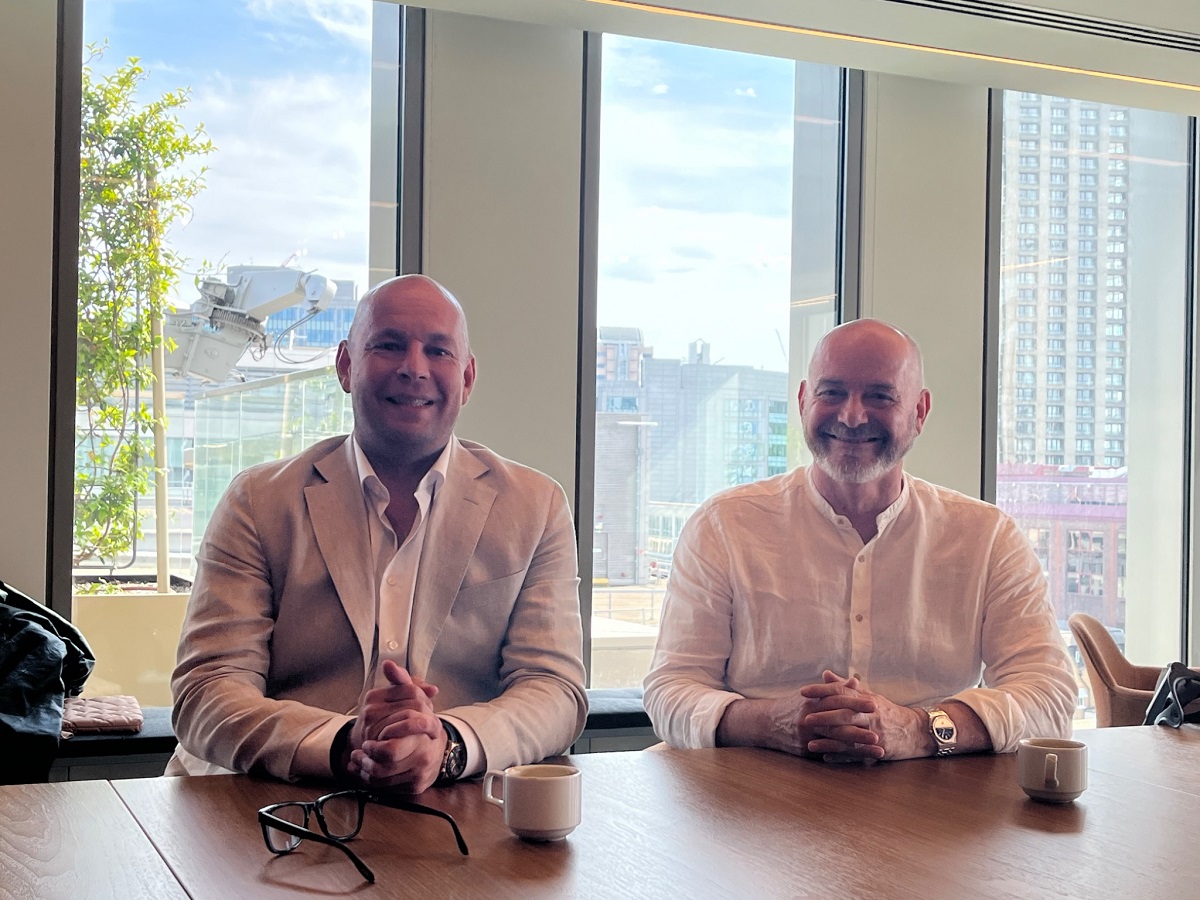
By Maria Emma Arnidou, Event Marketing Director at HIPTHER, for the European Gaming Media
During the recent EveryMatrix Media Day at the company’s opening of their new London office, Co-Founders Ebbe Groes (CEO) and Stian Hornsletten sat down with press to share key insights into their strategic vision. In this exclusive Q&A, we explore their views on the European Market, the evolution of EveryMatrix’s business model, leadership philosophy, and the company’s experience in the ever-evolving U.S. market.
Europe is filled with local heroes. It’s far more fragmented than most people think.
You discussed emerging markets in your presentation. What about Europe – is it considered saturated, or are there still areas of growth?
Ebbe Groes: I really don’t think Europe is saturated at all. In fact, big parts of it are still underdeveloped. Take France for example, it doesn’t allow online casino. Germany has effectively banned it. That’s two of Europe’s three largest economies where casino is either outlawed or nearly impossible. So yes, there is still plenty of room for growth.
Stian Hornsletten: And the market is getting more concentrated around a few bigger players, but even then, it’s not as centralized as in the U.S.
Ebbe Groes: Exactly. Europe is filled with local heroes. You won’t find many players dominating across the board. Kindred, Betsson – they’re strong, but when you go country by country and look at market share, the picture is very fragmented. Even with the economies of scale in marketing – say you sponsor a Premier League team – you’re still not getting the full return unless you’re present across multiple markets. That’s what makes Europe so different from the U.S., where a few big players hold all the cards.
We started with a sportsbook. Now we’re building an ecosystem.
EveryMatrix today operates across multiple verticals with a deeply diversified portfolio. Was this the vision from the start, or did it evolve as the company grew?
Stian Hornsletten: The vision definitely evolved quickly as we grew. We started with OddsMatrix, a B2B sportsbook product that was meant to be an off-the-shelf, managed solution – something that didn’t exist back then. Within a year, we had already expanded into turnkey and PAM solutions. By 2010–2011, we had launched the CasinoEngine and started specializing in product verticals.
We’ve always been very innovation-driven. We keep developing new products – some of which are still under wraps – and R&D remains one of the most exciting parts of what we do. Today, most of our top 10 clients are turnkey. While we still offer standalone modules, our growth has come from cross-vertical synergy.
Despite this scale and complexity, you both remain deeply involved in the company’s day-to-day operations. How do you manage to stay on top of everything across products, people, and processes?
Ebbe Groes: It helps that we’ve been here from the start. I wouldn’t want to be hired into this role now and try to learn everything from scratch – but I’ve had 18 years to absorb it all. We’ve built the company in a way that each vertical operates almost like its own business. For example, the sports division has its own CTO, product team, trading team, and even its own support function. That independence gives us breathing room.
It allows me to focus on high-level strategy, like acquisitions – take FSB, for instance. That required a lot of focus at the start, but eventually it will transition into the core business and require less direct involvement.
Stian Hornsletten: Over the years, we’ve also developed strong planning, reporting, and KPI structures across the business. That consistency makes it easier to monitor everything and integrate new divisions. Whether we open a new office or onboard a new team, we already have the systems in place to support them.
Ebbe Groes: And the same goes for finance and HR. When we opened the London office, the HR team already knew how to handle it – we’d opened three the year before. That kind of maturity allows us to move fast without creating chaos.
“In Europe we have 150 competitors in content; in the U.S., maybe 10.”
And what about the U.S. – a market many see as the holy grail of iGaming? What’s your current position there?
Ebbe Groes: To be honest, the U.S. was a tough lesson. We entered hoping to provide a full turnkey solution, but the market didn’t evolve the way we expected. Many well-funded B2C operators pulled out, and that left little demand for companies like us to offer the full stack. We pivoted to focus on one thing: our own gaming content.
Stian Hornsletten: We’re now live in four out of five regulated U.S. states for our own content, and we have agreements with all the major operators. Some new games from SlotMatrix are set to launch by summer, and they’ve already shown strong performance elsewhere – which gives us hope. If we manage to capture even 1–2% market share with our own content, that would already be meaningful.
But it’s been a long and costly process. Every state has its own regulatory requirements, separate hosting, and certification needs. And if one state’s not ready, operators won’t promote your games nationally. It’s frustrating, but it also reduces competition. In Europe we have 150 competitors in content; in the U.S., maybe 10. So if we can endure, there’s long-term potential.
The post Inside the Matrix: A Conversation with EveryMatrix Founders on Europe, Expansion, and Staying Hands-On appeared first on European Gaming Industry News.
-

 AGCO5 days ago
AGCO5 days agoAGCO Fines Great Canadian Casino Resort Toronto $350,000 for Serious Regulatory Violations Linked to Impromptu After-Party on Gaming Floor
-

 Africa5 days ago
Africa5 days agoALA Hosted Seminar on Artificial Intelligence and Cybersecurity
-

 Canada5 days ago
Canada5 days agoIGT and Atlantic Lottery Sign Eight-Year Video Lottery Central System Technology Agreement
-

 Africa4 days ago
Africa4 days agoDRC Signs MoU for Public-Private Partnership with Burundi’s East African General Trade Company
-

 Latest News5 days ago
Latest News5 days agoUnlock Top-Tier Deals and Careers: Parimatch joins iGB L!VE 2025
-

 Blokotech6 days ago
Blokotech6 days agoBlokotech unveils Cristian Tonanti as new Casino Partnership Manager
-

 First5 days ago
First5 days agoFIRST and Genius Sports Extend Landmark Data Partnership, Powering Continued Growth
-

 Latest News5 days ago
Latest News5 days agoJuicy Wins, Crystal Clear: ELA Games Releases New Luxury Title













